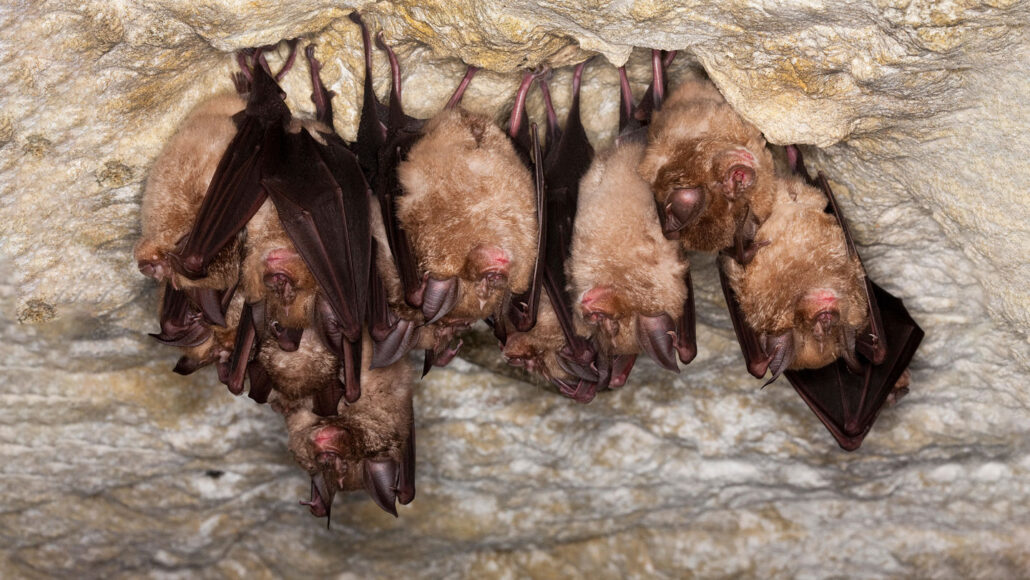Mammals that live in groups may live longer, longevity research suggests
Genetic analyses also suggest mammals’ social lives and life spans are evolutionarily linked

Greater horseshoe bats (Rhinolophus ferrumequinum) live in groups and live long lives, sometimes surviving up to 30 years.
Imagebroker / Alamy Stock Photo